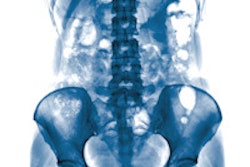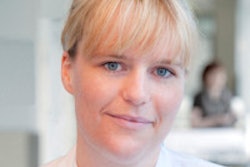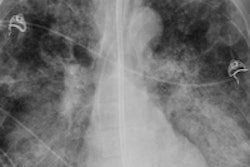An audit by the Royal College of Radiologists (RCR) has revealed U.K. hospitals are failing in their pediatric x-ray services.
The audit assessed practice against the recommendations of a 2010 Department of Health report that recommended all children should be examined and diagnosed by specialists with appropriate expertise. The report also proposed the development of clinical networks to provide round-the-clock pediatric radiology expertise and advice to local, nonspecialist hospitals. Approximately 75% of children's x-rays and scans are acquired in smaller, nonspecialist hospitals.
A total of 87 out of 198 eligible hospitals across all four U.K. countries that perform pediatric x-rays submitted data for the audit, which was carried out in 2012.
The audit found the following:
- 35% of children's x-rays and scans were performed by radiographers who had not received specific training in imaging children.
- 35% of children's x-rays and scans were being interpreted by radiologists with less than six months of training in a specialist pediatric center.
- Only 38% of responding hospitals had arrangements in place to access a second opinion around the clock, even though the technology for transferring images was available.
- Only 34% of radiographers who regularly performed x-rays of children had received any pediatric continuing professional development in the 12 months prior to the audit.
The most commonly reported reasons given by hospitals for not meeting recommended standards were the lack of radiographers with pediatric training, lack of time made available to undertake any continuing professional development, and the lack of access to pediatric specialists around the clock, the RCR said.
"These findings are deeply concerning," RCR President Dr. Giles Maskell said. "X-rays and scans play a vital role in the assessment of sick children. If missed or mistaken diagnoses are to be avoided, it is essential that all hospitals taking x-rays and scans of children can access a specialist opinion as and when they need it."
Maskell emphasized there are too few radiologists in the U.K. to meet demand, and he calls on Health Education England and the workforce planning bodies in the other U.K. countries to address this "dire situation" immediately by creating more clinical radiology training places. He also asks that the four national bodies planning and delivering National Health Service (NHS) services to support the RCR in creating networks of specialist expertise to improve the quality of services across the U.K.



















